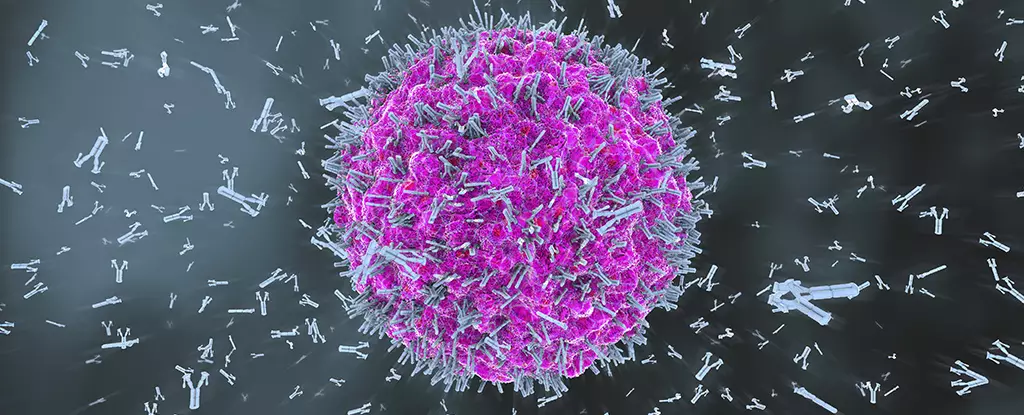Understanding how our immune system functions is crucial in maintaining overall health. When the immune system malfunctions, it can lead to autoimmune disorders and other serious health issues. Scientists are constantly researching and uncovering new information about the mechanisms behind the immune response. One such recent discovery involves a biological switch that deactivates a sensor of foreign DNA, providing valuable insight into how our immune system is regulated.
Cyclic GMP-AMP synthase (cGAS) is a key enzyme responsible for identifying infiltrating viruses in our bodies. This protein binds to foreign DNA in the cytoplasm of cells and triggers a reaction to alert the body of an invader. However, it is essential to regulate cGAS tightly to prevent it from attacking healthy cells, especially once it enters the cell’s nucleus. The recent study conducted by a team from the Swiss Federal Institute of Technology Lausanne identified a biological switch that marks cGAS for deletion in situations where no immune response is necessary.
The researchers discovered a protein complex named CRL5-SPSB3, which plays a crucial role in regulating cGAS activity. This complex adds a chemical called ubiquitin to cGAS, marking it as disposable when it is not needed. Essentially, this switch kills off cGAS to prevent it from attacking healthy cells, ensuring that it is only active in the presence of foreign DNA. This mechanism highlights the intricate control system that governs our immune response and prevents autoimmune disorders.
The interferon (IFN) pathway is a signaling pathway that controls the immune system response. Both cGAS and CRL5-SPSB3 are involved in this pathway, acting as regulators that determine whether the immune response should be activated. The researchers found that nuclear levels of cGAS affect the cellular IFN tone, emphasizing the importance of cGAS regulation in maintaining a healthy immune system. Understanding these interactions opens up new possibilities for developing therapies for autoimmune disorders and other immune-related diseases.
Autoimmune disorders, such as type 1 diabetes and inflammatory bowel disease, occur when the immune system loses its ability to distinguish between harmful pathogens and healthy cells. By studying the regulation of cGAS and the mechanisms behind its deactivation, researchers can gain valuable insights into how these disorders develop. The discovery of the biological switch that controls cGAS activity provides a new avenue for exploring potential treatments for autoimmune diseases.
The recent discovery of a biological switch that regulates the activity of cGAS sheds light on the intricate mechanisms behind our immune system. Understanding how cGAS is controlled and deactivated in the absence of foreign DNA is crucial for developing effective therapies for autoimmune disorders and other immune-related conditions. Further research into the interplay between cGAS, CRL5-SPSB3, and the IFN pathway holds promise for advancements in immunology and potential treatments for a range of diseases.

Leave a Reply